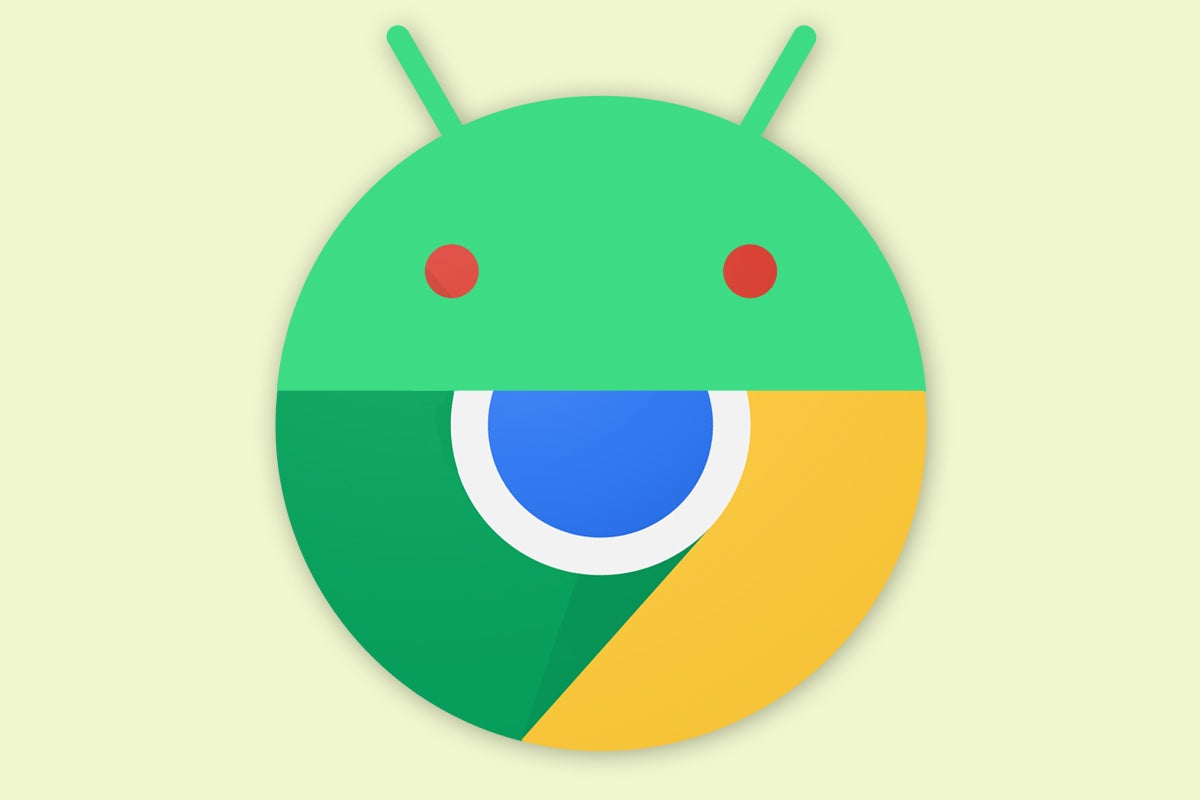Believe it or not, today marks exactly one month since Android 11 arrived in the world, all fresh-faced and bare-bottomed — and yet as of this moment, precisely one Android device-maker has managed to get the no-longer-so-newborn software into the hands of its highest-paying customers.
Yes, indeed, Google is the sole company to send out Android 11 in any widespread, non-beta manner, a full 31 days since the software's release. That's a step backwards from last year, where we at least saw one other manufacturer getting the current Android version out to its latest flagship phone within that first month.
But the notion of Android upgrades being a painfully slow affair in general is sadly nothing new. Most companies outside of Google have pretty much always treated operating system updates as a low-priority, low-investment afterthought — and despite the heavily pushed narrative that upgrade delivery times have been improving over the past few years, by and large, not much has changed.
As someone who closely covers (and uses!) both Android and Chrome OS and has seen how both operating systems have evolved over the years, I've been doing a lot of pondering lately about how the two platforms are alike and how they differ. Google's worked tirelessly to align Android and Chrome OS and make them more consistent and connected going all the way back to 2016, if not even earlier, and continuing through today.
So here's the question I present to you now — the million-dollar Android-Chrome-OS question, as it were: What if Google were to continue that alignment by bringing the Chrome OS upgrade model into Android?
It's a wild thought, I know — one that'd upend everything we think we know about the way Android upgrades work. It certainly wouldn't be a simple or black and white shift, and things couldn't possibly work out on Android exactly as they do on Chrome OS.
But, well, it sure is an interesting idea to mull over. And it could be a transformative — and also quite revealing — change.
The Android-Chrome-OS upgrade disparity
Let's start with some context on how upgrades work on Chrome OS and how that setup compares to Android. On Chrome OS, y'see, operating system updates come out every few weeks, with minor fixes, and roughly every six weeks with more significant version-number-worthy bumps. Those updates are all handled directly by Google, without any real manufacturer involvement, so they arrive close to the same time on all current devices, regardless of who made 'em.
Of course, the asterisk there is that on Chrome OS, the software is completely consistent from one device to the next. The companies that make Chromebooks can't do much to customize the interface and put their own "marks" on it (or, um, insert their own data-harvesting and spammy ad-plastering systems into it) like they can on Android. That's why Google is able to exert that level of control and make upgrades a consistently positive experience on Chrome OS — because everything's more or less the same everywhere, so Google is able to handle the process entirely by itself.
On Android, the situation is dramatically different. Android has always allowed manufacturers lots of leeway in modifying the software and making it look and work however they want, within certain boundaries. And that means the version of Android you get on a Samsung phone is almost unrecognizable from the one Google puts out or sends to its self-made Pixel and partner-made Android One devices. Because of that, it's obviously impossible for Google to handle all rollouts across the platform on its own — which means the onus falls upon each individual device-maker to take every Android update, muddle it up the way they want, and then send it out to their own customers.
And that's where the Android update bottleneck begins — with the fact that phone-makers, the companies that make their money purely by selling hardware, are tasked with processing and delivering software updates that they have zero incentive or motivation to prioritize. Unless they start seeing an impact on their device sales as a result of their poor upgrade delivery performance, why would they possibly care about getting updates out in a timely and reliable manner?
So that brings us back to our question — the notion of the Chrome OS upgrade model being brought into Android. The idea of introducing a consistent software experience across device-makers on Android probably isn't realistic at this point; for better and often for worse, diversity and the ability for phone-makers to bring their own customizations (and business interests) into the operating system is a huge part of what made Android as successful as it is today, and Google would have a difficult time taking that back.
What Google could do, though, is adopt the Chrome OS upgrade philosophy — and really shake up the status quo we've all grown accustomed to accepting on Android.
An Android-Chrome-OS upgrade alignment
Consider this: Why does Android still have an upgrade setup that emphasizes a single new version each year? It makes for a splashier presentation, sure, but Android updates themselves are rarely all that exciting anymore. These days, they're mostly about under-the-hood improvements in areas like performance, privacy, and security — important stuff, without a doubt, but not the sort of elements that get average phone-owners a-talkin'.
More than anything, it seems to come down to a legacy sort of carryover — along with, perhaps, the reluctant acceptance of device-makers' indifference to delivering even those once-annual updates and the worry of how they'd handle anything more than that.
But the annual update cadence is actually a disservice to most of us. It places undue emphasis on a single yearly event that almost always feels like a letdown to most casual observers, and it keeps important performance, privacy, and security improvements from reaching us 11 months out of the year.
So what if, instead, Android upgrades arrived every few weeks with minor patches and fixes — the equivalent of the monthly security updates provided now — and then every six weeks with a meatier version that contained a handful of more significant under-the-hood improvements along with the occasional front-facing addition or enhancement?
Each one of those updates would be a fraction of the scope of a current annual Android update, but over the course of the year, they'd add up to a whole lot more — and a much more timely, customer-focused approach on top of that. There's a reason Chrome OS is about to reach version 87 while Android is only on version 11, despite the fact that Android's been around since 2008 and Chrome OS has only been publicly available since 2011. There's far less emphasis on each individual Chrome OS update, but the collective effect of them over the course of a year is staggering.
What's especially telling here is that in a sense, Google is already doing this — at least, to some degree. Google's been working to separate many traditionally system-level elements out of the operating system on Android and turn 'em instead into easily updatable, standalone elements for a decade. Everything from the front-facing system-like apps for email, calendar, messaging, maps, photos, keyboard and so forth to the behind-the-scenes utilities like Google Play Services (which powers all sorts of location-, privacy-, and security-related elements on Android devices) now get updated numerous times a year — directly from Google and independent of any formal operating system rollout. That's quite a contrast to what you see on a platform like iOS, where all that same stuff is baked into the operating system and updated far less frequently.
Over the past couple years, the list of unbundled Android operating system elements has expanded to include a range of increasingly advanced system functions — everything from components that control media playback on a phone to those related to network functionality. With Android 11, the collection is growing even more ambitious, and Google says that with next year's Android 12 release, it'll actually gain the ability to deliver entire new APIs — the typically-OS-connected programming interfaces that allow apps to interact with devices and are critical to both privacy and security enhancements and feature expansions — on its own, without any formal Android version rollout or manufacturer involvement.
Between that and all the other out-of-operating-system updatable elements, Google practically is pulling off a Chrome-OS-like update approach on Android; it's just doing it covertly and as one small part of a broader strategy. Moving from this to a more formalized effort that combines those non-OS-connected elements with the more formal, OS-associated updates wouldn't even be such a leap. It'd be a natural, almost obvious progression.
There's just one more variable to consider.
The revamped Android upgrade reality
If Google did ever start sending Android updates out on a more frequent, ongoing basis, how would the device-makers who already struggle with getting a single update out each year respond? How would that actually play out?
Well, assuming that schedule would involve a mix of bundled standalone elements and more formal, manufacturer-involvement-requiring updates, it seems like one of two things could happen.
First, device-makers could be forced to step up their game and start caring. Being four to six months behind on a major Android version may be something Samsung, LG, and Motorola can get away with without much repercussion — but if they fall, say, six versions behind the current Android standard, as they might if they're perpetually six months behind with a monthly update cadence, that might be more than savvy decision-makers in areas like the enterprise would be willing to tolerate. And if some updates revolve around those unbundled elements while others focus solely on more formal, traditional rollouts, they could really find themselves in a pickle.
The other likely-seeming possibility is that many manufacturers would just be painfully behind the curve at all times — or would take it upon themselves to roll out updates less frequently and deliver, say, a biannual compilation of the past six months' worth of releases. That, in turn, would emphasize the superior nature of Google's own Pixel phone arrangement and its substantially more frequent update setup, which would give Google extra ammo in marketing its homemade devices (again, particularly in areas like the enterprise, where having devices fall woefully behind the curve on software is something companies don't generally like to see).
Either way, it'd arguably be an improvement from the current status quo, particularly from Google's perspective — and certainly from the perspective of us, as users of these varied devices. It'd also serve to emphasize the advantage of Google's existing system for delivering frequent universal updates to so many system-level elements, something that's almost always overlooked and underplayed in Android-iOS comparisons.
What's fascinating with all of this is that Google actually did bring some of Chrome OS's software updating approach into Android all the way back with 2016's Android 7 (Nougat) release. That software saw the introduction of a Chromebook-like system for background-based update downloading and installation. It's what allows for a more seamless and invisible transition into a new operating system version — something that absolutely was not present in Android up to that point.
Now it's time for Google to finish what it started and bring the rest of the Chromebook update approach into the world of Android. The splashy annual releases are a relic of a bygone era and a needless limitation in this modern age. Chrome OS has demonstrated that quite effectively — and now, Android needs to follow suit.
Will Google ever actually make this happen? That's a pretty big "if," especially given the delicate dance it's forced to do when negotiating with its Android partners and trying to keep everyone happy. If it worked up the cajones, though, it'd be one heck of a step forward for Android — and one desperately overdue restart for a system that clearly isn't working.
Sign up for my weekly newsletter to get more practical tips, personal recommendations, and plain-English perspective on the news that matters.

[Android Intelligence videos at Computerworld]




















































































